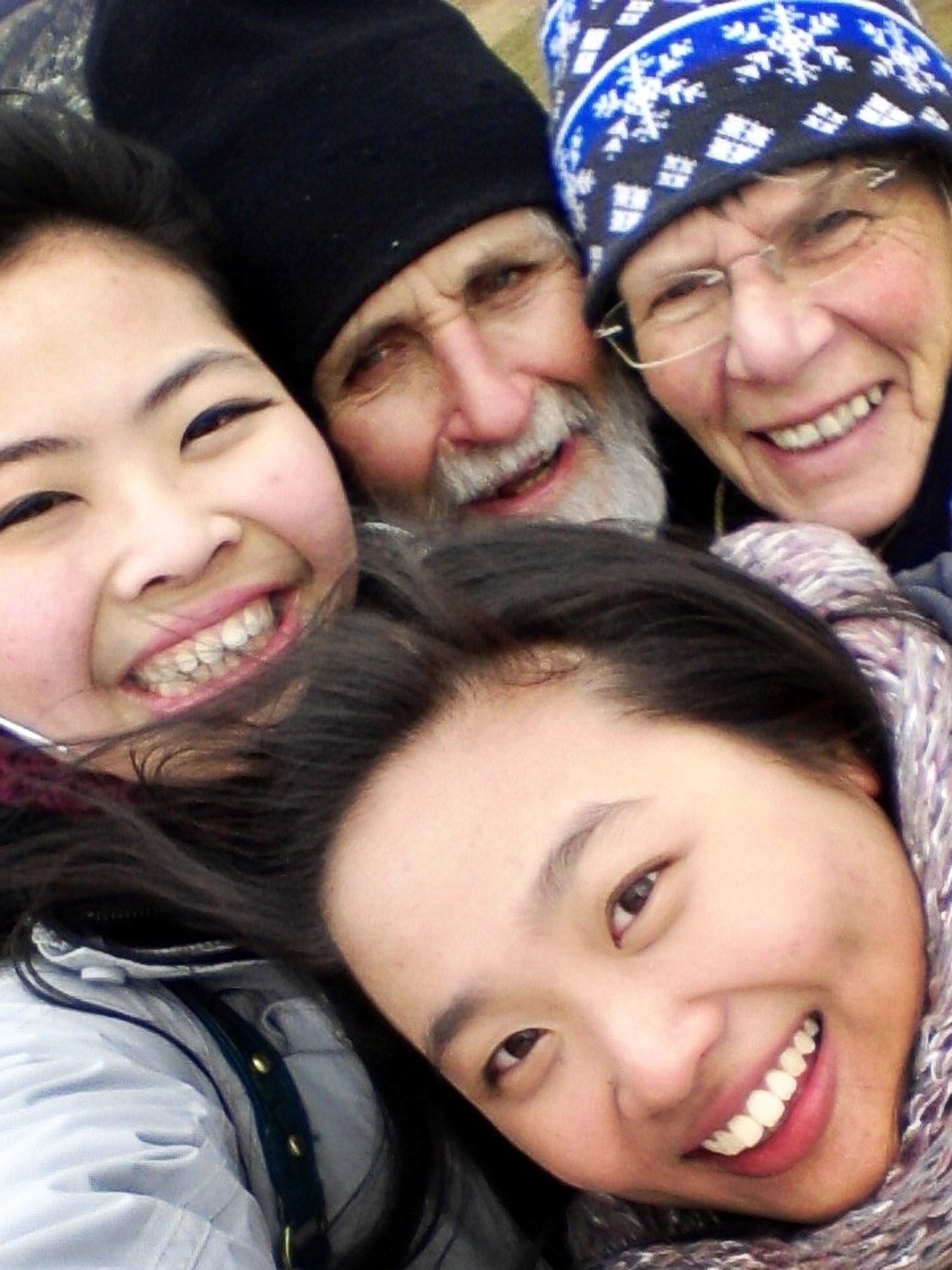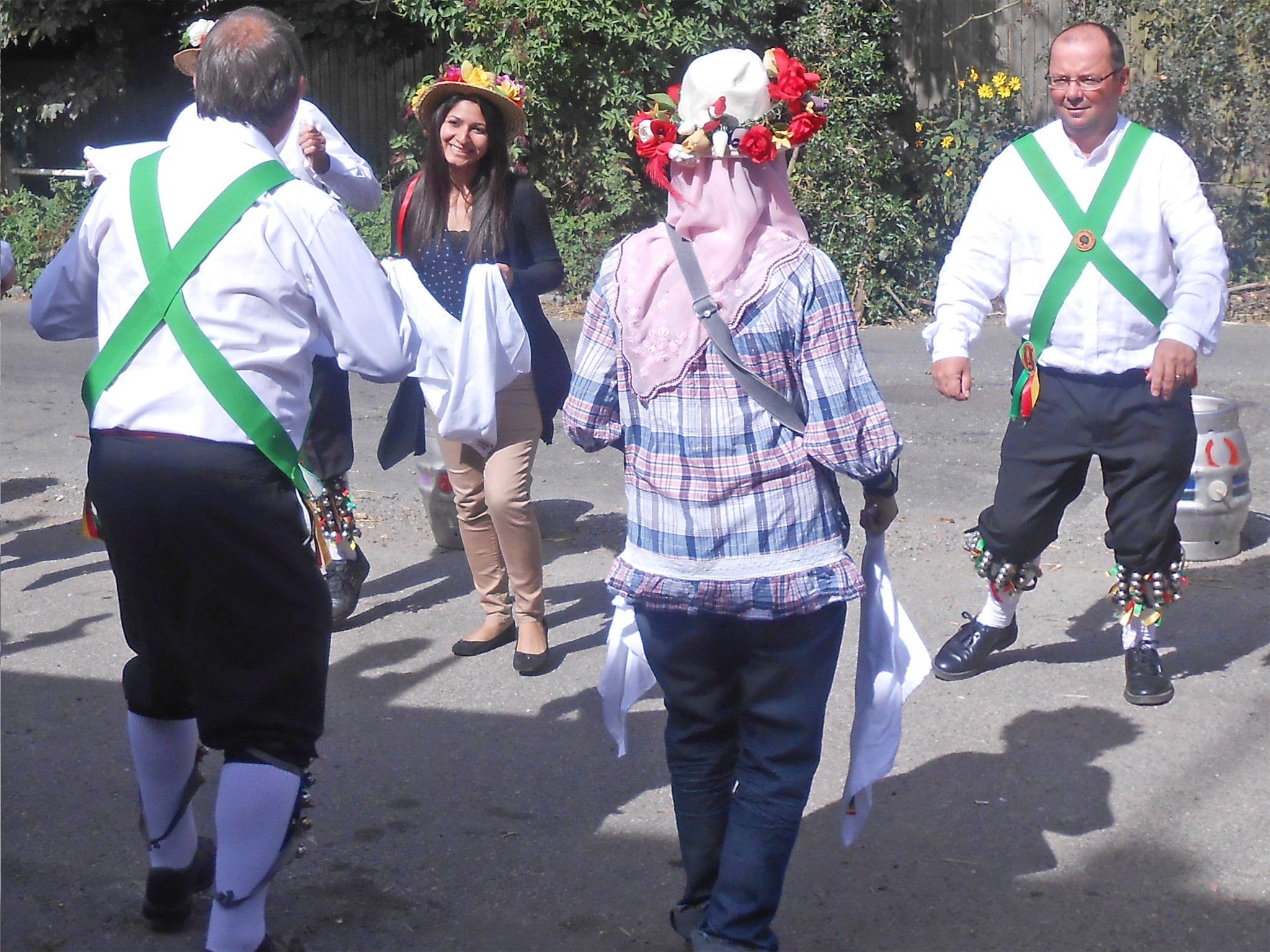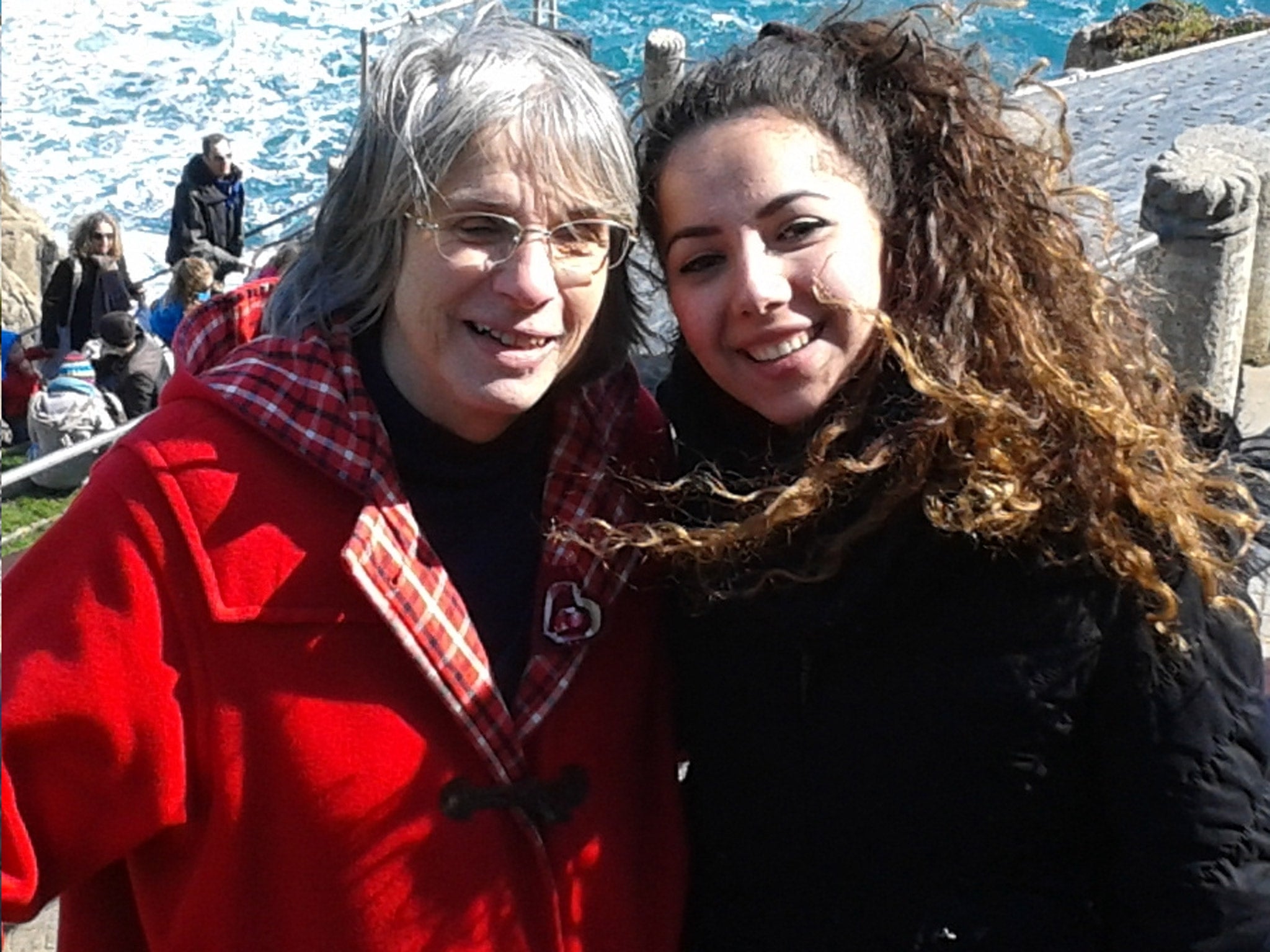Host with the most: Margaret Steven's charitable work arranging short stays with UK families for foreign students is at risk

When Margaret Steven was a child, she dreamed of living the life of a diplomat's daughter. Her father was an accountant working in the UK so the dream was unlikely to ever come true but it fuelled a thirst for knowledge of other countries and cultures that led to her being awarded a British Empire Medal in the New Year's Honours List.
For the past 25 years, Steven has worked as a volunteer for HOST – a charity that organises stays for international students in UK homes to help them learn a little more about the lifestyle of the people in whose country they are studying. The award should be a time for celebration and Steven is justifiably pleased with the recognition it gives the work that both the charity and she personally have been engaged in.
Any thought of celebration, though, is tinged with worry as HOST faces a risk to its future. Over the years, it has received funding through the Foreign Office and the British Council but that has now been withdrawn – and the charity is now dependent for its survival on enough host families coming forward to volunteer to take in students. While the funding has dried up, the number of volunteer host families required each year remains the same at around 1,600. Now the charity has to charge an administration fee of £50 for each visit. It is sometimes paid for by the university where the student is studying – but there is a fear that, while everything else is provided free, the fee could put some international students off seeking such a placement if the university is not inclined to pay.
Steven's involvement began when she was studying English at Bristol University, and volunteered to meet international students off the train and help them settle in to their homes during their first few weeks in the country. She recalls one occasion when she asked a startled young man: "Are you an international student?" Back came the reply: "I don't know. I've been at school in England but my father's the Bishop of Guyana."
It was a short step from there to acting as a regional director for HOST in Cornwall – and acting as a host herself. She reckons that over the years she must have invited students from at least 50 different countries into her home. "What I love about it is the matching of a need to its solution," she said. "Here's a student feeling a bit homesick or with nowhere to spend Christmas and here's a friendly person who would love to make that student feel welcome and at home for the weekend. When it works well – which it nearly always does – then it gives me a real kick .

"It is quite a big ask to invite a stranger into your home but people who become hosts find it's a wonderful thing to do. It makes you feel more connected to the world and is a small personal contribution towards goodwill between nations. Countless students have said their HOST visit changed their life."
If the letters she she was sent on receiving her honour are anything to go by, the same is true for the host families, too. One said: "I think the visits of different families have helped my family enormously to see that people are people. As Faisal [one of the students] said: 'The weather is different and the colour of our skins perhaps but families are families wherever you go'."
John Galatia, who has also acted as a host in Cornwall, said: "Many of the students are on courses where they have no meaningful contact with English people. They usually only mix with other international students. Yet many of their studies here open the way for them to return to their country to take up very significant jobs that involve working with other countries such as the UK.
"So inviting international students into your home can have far-reaching consequences for the UK and nurture better understanding of our culture."
Over the years, Steven has noticed that it is not normally the "hail fellow well met" types who have an open-door policy towards people entering their homes. Many volunteers lead a quiet rural lifestyle and, for them, it may be the only way they will be in contact with people of another culture.
"My wife and I lead a quiet lifestyle," said one. "Inviting Host guests was a Christmas present to ourselves – it provided interest and a different dimension to what would otherwise have been a very quiet Christmas. It forced us to be interactive with people of a different culture and do things we would not normally do. It more than lived up to expectations and made for a wonderful Christmas."
Christmas is certainly the most popular time of year for visits to be organised, but they can go on throughout the year as well. As Steven says, "You can find that it is a great way to fill up your time for a very short while. You can find at Christmas, if your children have all grown up and gone off to the in-laws, it can fill a gap. Alternatively, if your children come back after university and want their bedroom back, you may give up."
Some families who have volunteered to take part in the scheme say that it can broker peace at Christmas – teenagers who may otherwise have played up are on their best behaviour because there is a guest in the house.
HOST is also organising day visits for students as well as weekend or holiday stays and these have proved popular for would-be hosts who want to dip their toes in the water but are not sure whether they want to fully commit themselves to a two-night stopover. After having a day visit, some hosts go on to volunteer for a longer stay.

Today, the country with the largest number of students seeking a stay is China – a picture that has emerged over the past few years. "When I first started, I think the majority were from Malaysia," said Steven.
She recalls that one of the students with whom she had the best rapport was a Turkish girl. "We just really hit it off with each other from the start," she said. "She writes from time to time, and she'll come again because she's going to do a PhD now.
"I think one of the things it can give you is a closer interest in the world, particularly if you see something on television. We had one Syrian girl and you think: 'Is she all right?' I think she's out of Syria now but her parents are still there. You relate to events on a more human level."
Most of the students are post-graduates in their late twenties or possibly thirties. However, there are a number of undergraduates – mainly from the United States – who, according to Steven, "offer a different challenge". Many of them are studying at the UK campuses of their American universities, largely alongside other American students, so this offers the best chance they have of mixing with British citizens.
One spin-off for Steven came when her son took a teaching job in China. "When he was there in his fourth year, we thought we should go and visit him. There was a student who had taken part in the scheme who had gone back there – and she invited us to stay in her parents' home."
It was a cultural eye-opener. They were living on the 25th storey of an estate and, early every evening, music was piped into the square below. "Presumably by the state," says Steven. "You could do ballroom or line dancing to it. It reminded me of someone back in the UK who had taken their students out to a pub and they had been fascinated by Morris dancing outside."
Steven's honour – on a recommendation from the Foreign Office for services to diplomacy – appears to be proof that those in high circles value the work that the volunteers at HOST are doing. In the light of this recognition from the upper echelons of the civil service, it would be a shame if a charity that helps to foster greater understanding between nations should founder – or even cease to exist.
For Margaret Steven herself, the award is almost like coming full circle, from the days of dreaming about being a diplomat's daughter to being recognised by the crown for her services to diplomacy.
Join our commenting forum
Join thought-provoking conversations, follow other Independent readers and see their replies
Comments